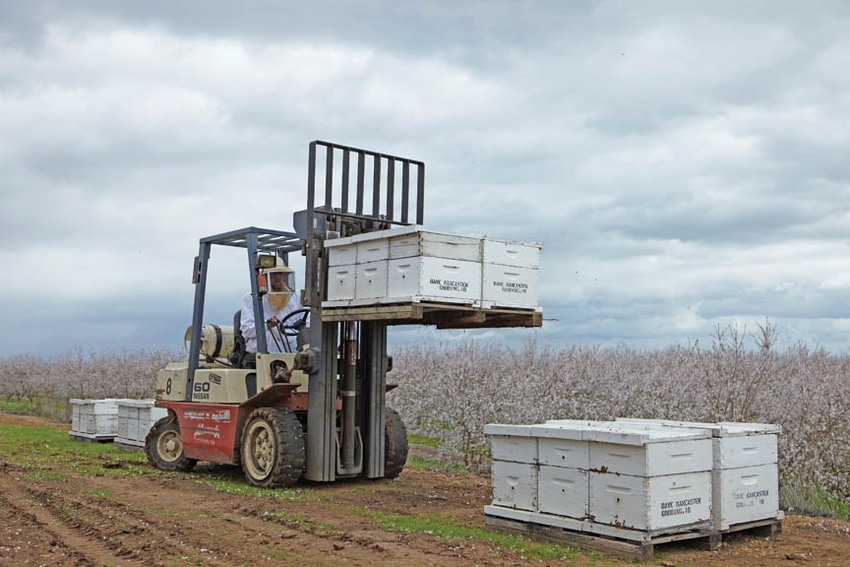October 28, 2013

Workshops covering two topics of critical importance to California Almond growers — water use and nitrogen management — will be on tap at The Almond Conference, to be held Dec. 3-5 in Sacramento.
The workshop “Irrigation Strategies for Drought Management” will look at new information on best practices for season-long water management under different water availability scenarios. It draws on recently completed Almond Board of California (ABC)–funded research on spur dynamics and drought survival strategies for almond orchards, as well as current work defining almond yield and yield response to varying levels of water applied. Growers will also learn more about irrigation scheduling and other ways to fine-tune irrigation practices.
The “Nitrogen Management and Budgeting” workshop will help growers implement an updated in-season nitrogen budget model that can help improve yields, reduce input costs and reduce the potential for off-site movement of applied nitrogen. The workshop also provides an update on the requirements of the expanded Irrigated Lands Regulatory Program.
Growers and processors will have many opportunities throughout the three-day conference to interact with researchers and key industry representatives to learn more about environmental and production research, practices and issues through a series of workshops, symposium panels, and research posters and presentations.
Symposium panels slated for Wednesday and Thursday will highlight a number of important issues, including sustainability, pest management, field quality issues, and honey bees and pollination.
First Almond Sustainability Report
The first status report on sustainability in California Almonds will be provided Wednesday afternoon. The comprehensive report on the California Almond Sustainability Program (CASP) will illustrate the range of sustainable practices being applied in almonds, and their relative impact on resources and issues, including water, air, energy, bees, tree nutrition and pest management. The report will show where the industry excels and where improvements are possible.
Later on Wednesday evening, a symposium on field quality will look at updated guidelines for stockpile management, coping with harvest rains, and ongoing research results for managing concealed damage.
Thursday’s symposiums start with a big-picture panel discussion on honey bees and pollination. This symposium takes a comprehensive look at the factors that impact honey bee health and supply — what almond growers can do to contribute to bee health and supplies through grower best management practices, bee contracting and hive inspection, planting honey bee forage crops, and developing a solid partnership with beekeepers.
Pest Management Symposium
The final symposium Thursday morning will look at new developments in the areas of pest management, including insects, weeds and diseases. Insect pest management will focus on field evaluations of a new multicomponent navel orangeworm pheromone for field monitoring; a look back at lessons learned from the difficult 2013 mite year; and an overview of pyrethroids for navel orangeworm control.
Disease management topics include emerging disease problems with the canker complex and bacterial spot, biocontrol of aflatoxin, and foliar disease management and fungicide resistance. Field research on weed management strategies, new herbicides and resistance management will also be discussed.
And finally, for those who want a quick yet comprehensive overview of the Almond Board of California’s ongoing research programs, more than two dozen researchers on Wednesday and Thursday afternoons will provide six-minute research updates, also known at the conference as “Speed Dating.” Poster sessions immediately following will allow growers to speak one-on-one with these and many other researchers. The posters can be visited at any time the exposition floor is open on Wednesday and Thursday.
With a number of different formats and options, growers will have many opportunities throughout the three-day conference to learn how Almond Board of California research programs continue to advance yield, quality and environmental stewardship. For information or to register for this year’s conference, go to www.almondconference.com. To review the complete program, go to http://bit.ly/TACProgram.
More from Western Farm Press
CAPCA 2013 conference draws big crowd
Pig farmer replays Deliverance with repo men
Agriculture’s economic forecast is sunny... with a few clouds
You May Also Like




